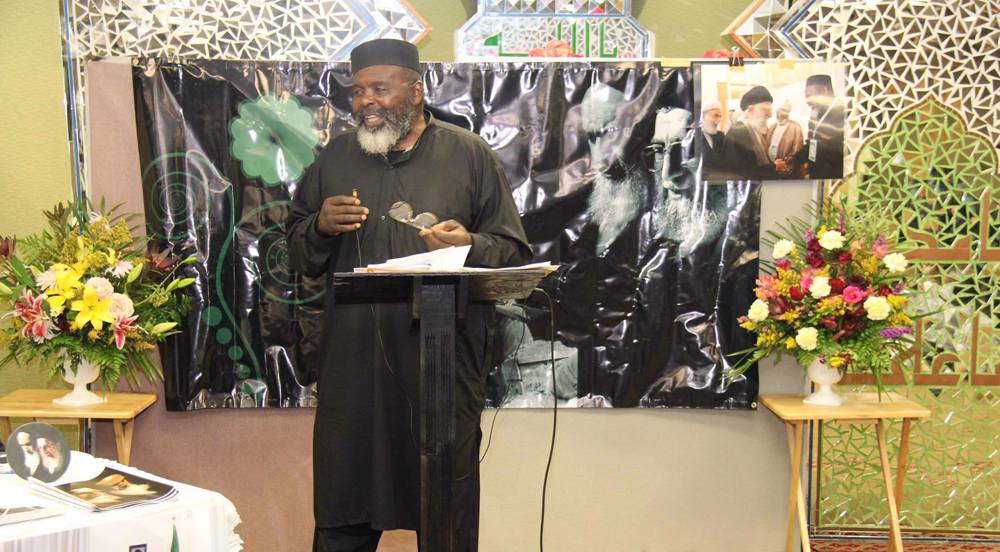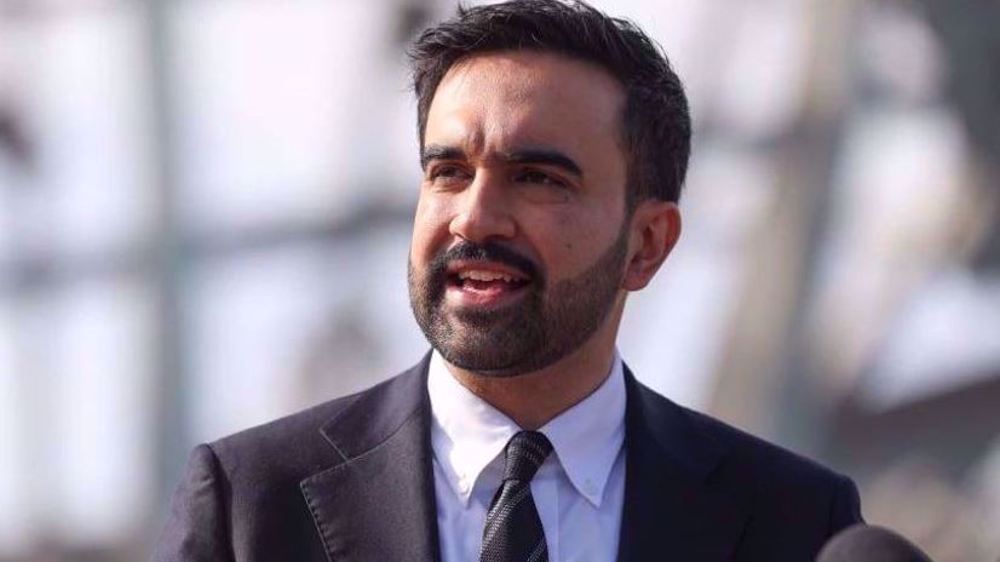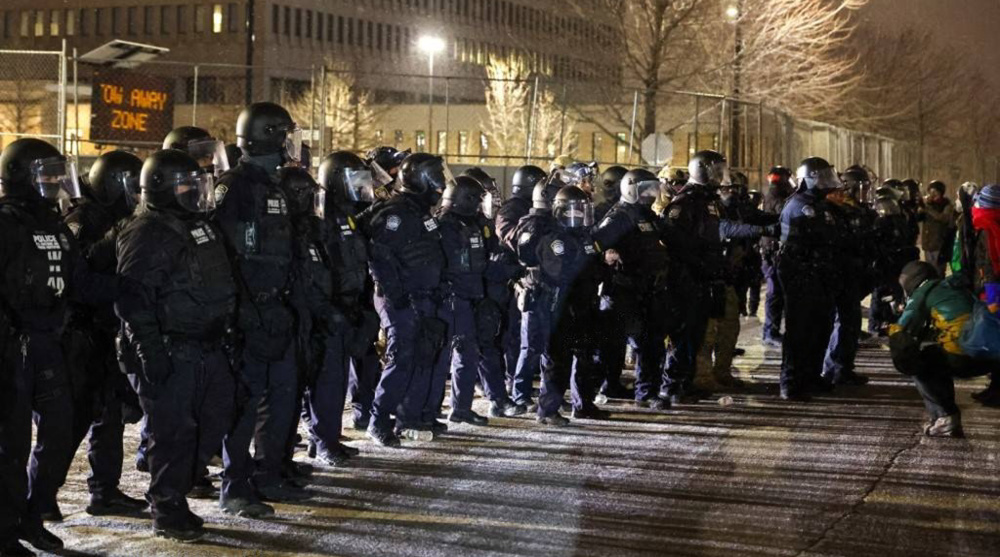Imam Abdul Alim Musa: US Muslim leader and advocate of Islamic Revolution
By: Mohsen Badakhsh
Muslim communities in the greater Washington DC metropolitan area and across the United States on November 25 bid tearful adieu to the revolutionary African-American Muslim leader, Abdul Alim Musa, who devoted his entire life to the struggle against American hegemony and Israeli apartheid while fervently championing the cause of Iran’s Islamic Revolution.
Imam Musa was widely regarded as a leading advocate of the struggle against the scourge of racism and White supremacy in the US as well as America’s global hegemonic ambitions, following in the footsteps of Martyr Malcolm X, an American Muslim civil rights leader who was assassinated in 1965 by undercover government agents.
Perhaps the most outstanding tribute to the life and legacy of Imam Musa is more than 50 years of indefatigable and selfless struggle for justice, peace and human rights while persistently advocating the Islamic Revolution across the globe, despite numerous obstacles on the way.
What impressed me the most about Imam Musa in the early 1980s, when I was a student activist in the Washington DC area, was his assertive, yet simple, talk about his own life experience.
He frankly spoke about being lured by federal agents into a highly profitable business of distributing narcotics among youth in African American neighborhoods and eventually being arrested and imprisoned before he converted to Islam and dedicated the rest of his life to serve and spread the message of Islam.
Born in February 1945 as Clarence Reams in Arkansas, Imam Musa in the 1960s accompanied his family to Los Angeles, California, where he was recruited to become the CEO of one of the largest drug distribution centers on the West Coast of the United States.
In 1981, after being released from prison in narcotics operations case, Imam Musa converted to Islam and settled in Oakland, California, where he founded Masjid al-Islam with the help and support of his elder brother, Buddy, and worked tirelessly to give back to the society.
Imam Musa was a Muslim leader who stressed the significance of building strong moral character in his community members. His enlightening speeches underlined the importance of Muslim unity across the globe. His travels throughout the world provided him with a world-class education.
He remained a symbol of struggle, defiance, humanitarianism, and optimism. He was in effect a combatant for over five decades against any system that opposed the full realization of humanity of any people regardless of their race, color or religion.
Imam Musa was also the leader and founder of the As-Sabiqun Movement. He believed that we have to be the ones we are looking for. The movement was dedicated to uplifting the Muslim world and particularly the Black community.
While deeply critical of oppressive policies and practices of the US government against African Americans and other minorities in the country, Imam Musa was well-informed about international developments and passionately advocated the cause of Palestinian resistance against the Israeli regime’s occupation and atrocities, blasting Western powers for backing an illegitimate regime as part of their abusive history of colonizing Africa and other regions of the world.
He always hailed the struggle of other resistance groups and people that fought against foreign-backed meddling and military invasions in places such as Syria, Yemen, Afghanistan, Iraq, Venezuela, Libya and elsewhere, slamming what he bluntly described as subversive US-led military, political and economic terrorism against independent and weak nations aimed at plundering their wealth and resources.
Another remarkable trait that defined Imam Musa was his continuing and impassioned support for the Islamic Revolution and the Islamic Republic in Iran.
He closely followed developments in the country and courageously censured all foreign and domestic schemes to destabilize the Islamic Republic, which he praised as the best existing model for other Muslim nations to follow.
Imam Musa believed that the Islamic Republic founded by Imam Khomeini in 1979 advocated justice and independence for all nations struggling against West-backed autocrats.
In addition to his incredible patience and resolve to continue with the Islamic struggle, Imam Musa was also extremely kind and compassionate towards fellow Muslims of all races and ethnic backgrounds.
While expressing his love and affection for his former supporters and comrades, he would kindly caution them against trusting what he described as “the Great Satan,” insisting that their newly found affluent lifestyle may suddenly turn against them if they remained indifferent about injustices perpetrated by oppressors within their own communities and elsewhere.
In fact, Imam Musa also shared with me a few years ago his displeasure and concerns about a growing number of Muslim immigrant communities and Islamic centers in the United States turning their backs on American Muslims and no longer welcoming them in their centers as part of an effort to keep them in some sort of ethnic-specific gathering places with little regard for issues affecting the rights of Muslims across the US and the world over.
He, of course, saw this as a direct outcome of persisting US surveillance of mosques and Islamic centers across the country as well as its declared efforts to spy on individuals attending Islamic centers and even recruiting Muslim informants to spy on other Muslims.
As a result, he said, many Muslims tend to avoid active participation in political issues, fearing that they or family members could be targeted or harassed by federal agents.
Although the sudden passing of Imam Musa is a great loss to the Muslim community in Washington DC area and Muslims across the world, I hope his life and legacy serves as a beacon of inspiration for future generations.
Mohsen Badakhsh is an educator and freelance journalist.
UK ‘preemptively’ discharges pro-Palestine hunger strikers recovering in hospital
US dollar falls in Iran amid rising export currency supply
Trump’s ‘Board of Peace’ for Gaza an extension of Israeli occupation: Ex-UN rights chief
IMF expects Iran’s economy to grow by 1.1% in 2026
Over 9,350 Palestinians held in Israeli prisons as of early January: Rights groups
VIDEO | Press TV's news headlines
Israel plans to seize Palestinian-owned land in occupied East al-Quds
VIDEO | Displacement in Al-Ouja: A broader push to reshape the occupied West Bank










 This makes it easy to access the Press TV website
This makes it easy to access the Press TV website